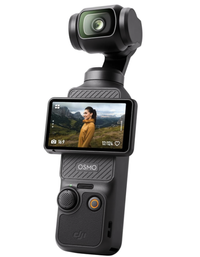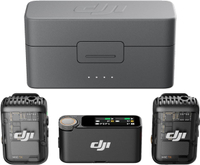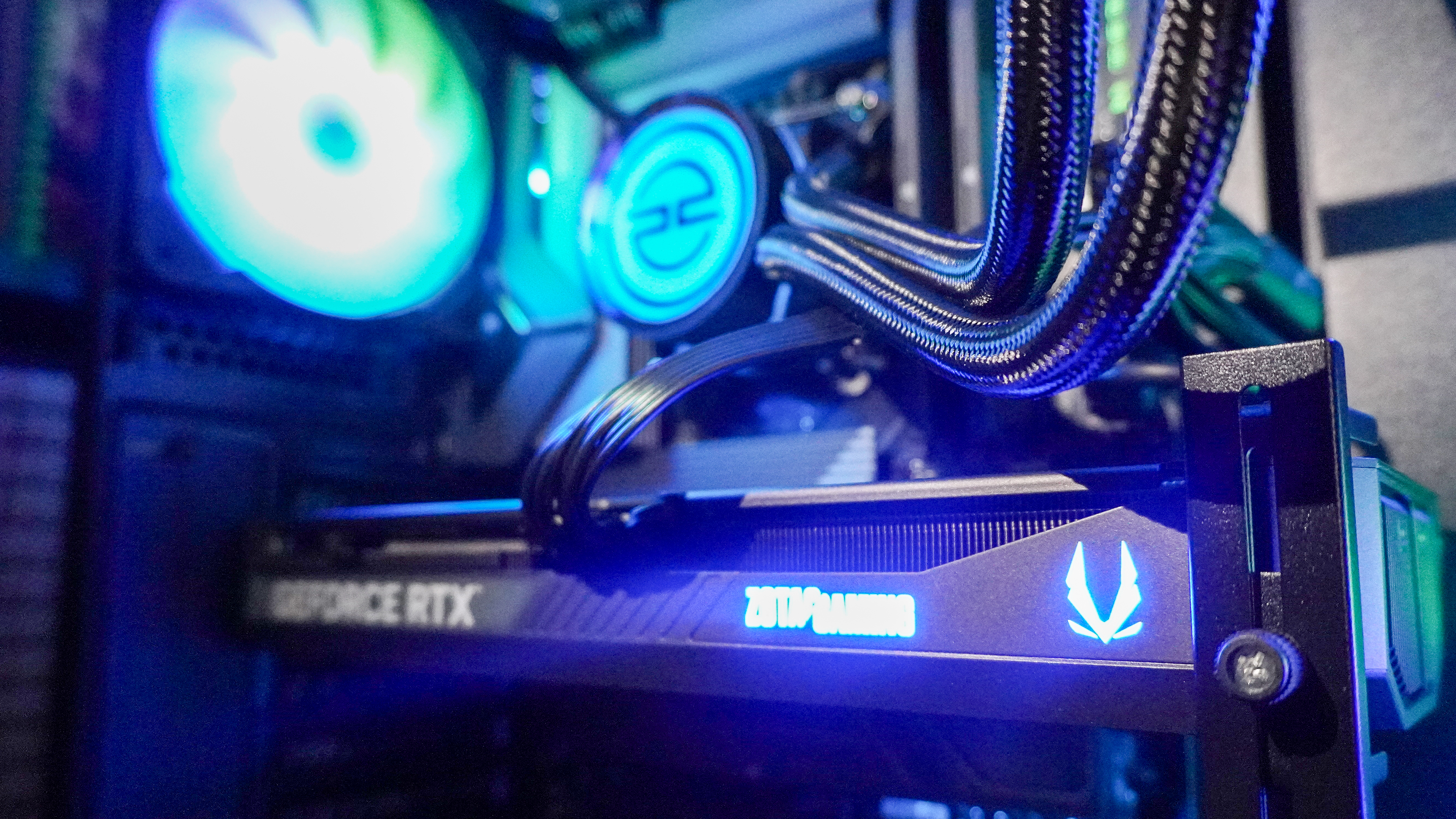I replaced my camera with the DJI Osmo Pocket 3 for a week — here’s what happened
Does this camera do it all?
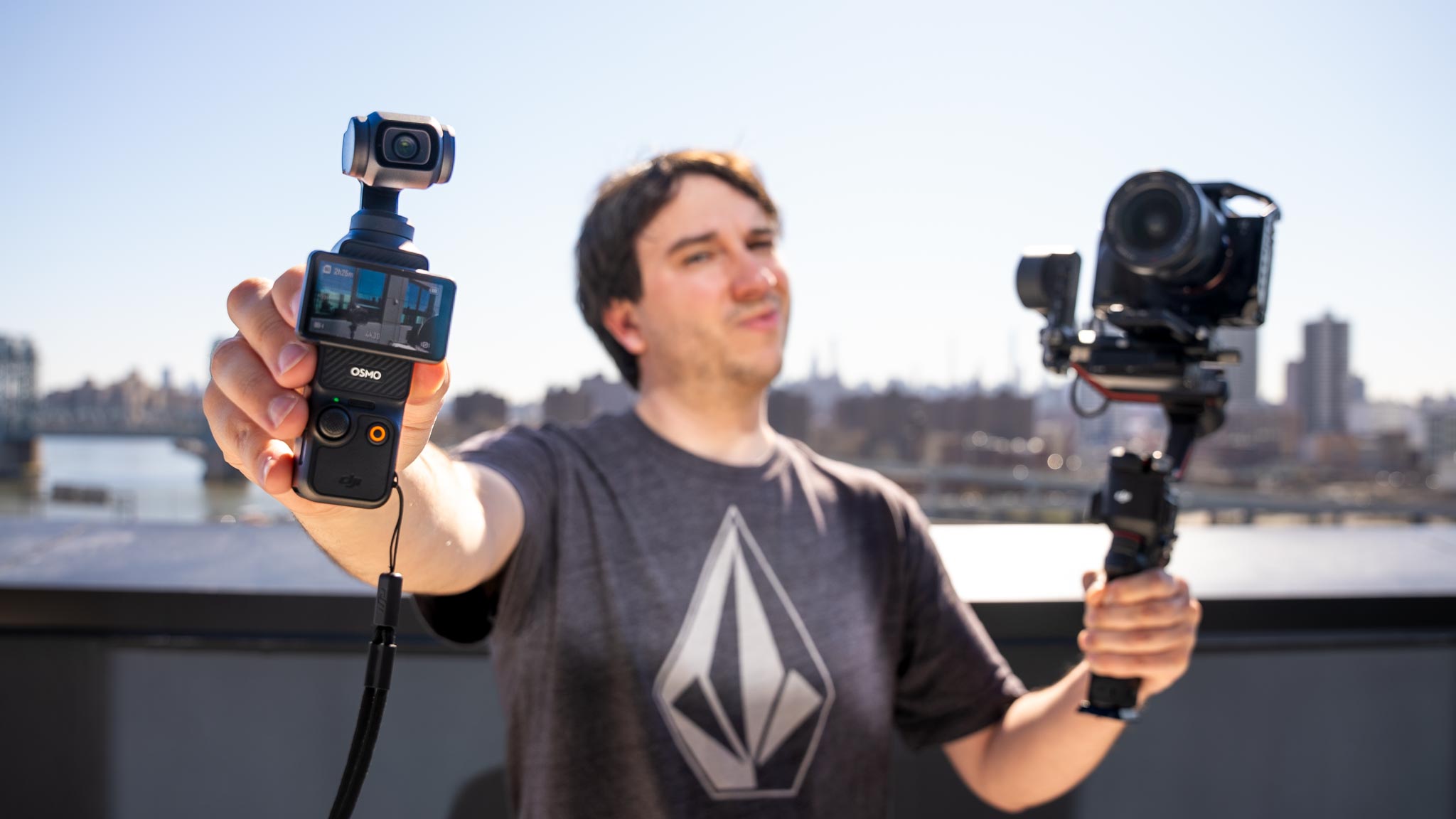
Last week, I used the DJI Osmo Pocket 3 at SXSW as my only camera for capturing highlights of the festival, exploring the hottest food spots in Austin, and even snagging interviews and product demos.
So, how well did the DJI Osmo Pocket 3 do, and did I end up regretting leaving my Sony a7iii and the rest of my usual gear behind? Check out our full YouTube video to see the camera in action and its impressive results.
The DJI Osmo Pocket 3 is an all-in-one camera with a a built-in gimbal that helps you capture super smooth video effortlessly. It gets a major upgrade this year including a larger 1” sensor for better low light quality and more pleasing depth of field, as well as a 2" flip out screen which makes framing your shots and changing settings a breeze.
DJI Osmo Pocket 3: $519 @ Amazon
The best pocket-sized camera gets a major upgrade and feels more pro than ever.
Camera size matters
I've been using my full-frame Sony a7siii, DJI Ronin gimbal, and some kind of zoom lens like the Sigma 24-70 as my main video kit for years. But honestly, after 8+ years in the game, my back is screaming for relief. Just the thought of lugging that around during a multi-day festri was enough to make me break out in a sweat.
Not only does the Osmo Pocket 3 weigh less than just my one lens, it's also much easier to pack. Unlike my kit, which tends to hog up over half of my PGYTech OneMo 2 Camera Bag (one of the best choices for videographers), the Osmo Pocket 3 and all its accessories fit neatly into just one compartment. It was such a relief to pack less gear this trip.
No awkward gimbal needed
The biggest reason I got the Osmo Pocket 3 is that I don’t need a dedicated gimbal to capture smooth footage, it's built right in. Even more compact ones like my DJI RS3 Pro are still awkward to travel with, take time to setup, and when you’re done using it, where do you put it? With the Pocket 3, I can get comparably smooth results with a much easier and faster to use all-in-one camera.
This let me stay engaged with what was happening in that moment. I didn't have to use two hands to steadily move my camera — instead, it was as simple as pointing in the general direction of what I wanted to record, and the results looked great.
Just like with your phone, the idea with the Osmo Pocket is that it’s always in your pocket. As you’ve probably heard 1,000 times, the best camera is the one on you. Whereas my usual gear left me questioning whether it was worth the hassle of carrying it around all day, the Pocket 3 was always on me ready to capture whatever I found interesting. It encouraged me to capture moments that I normally wouldn’t bother taking out my other setup to film.
Compatible mics are a must
If you want to step up your audio game, with the Osmo Pocket 3, you can effortlessly pair up to two DJI Mic 2 units via Bluetooth — no transmitters or adapters needed. They sync up automatically as soon as you turn them on, so you can dive right into your recording without the usual hassle. When paired to the Pocket, I was able to easily monitor and adjust both audio levels directly from its main screen which was a big time saver.
Sign up to get the BEST of Tom's Guide direct to your inbox.
Get instant access to breaking news, the hottest reviews, great deals and helpful tips.
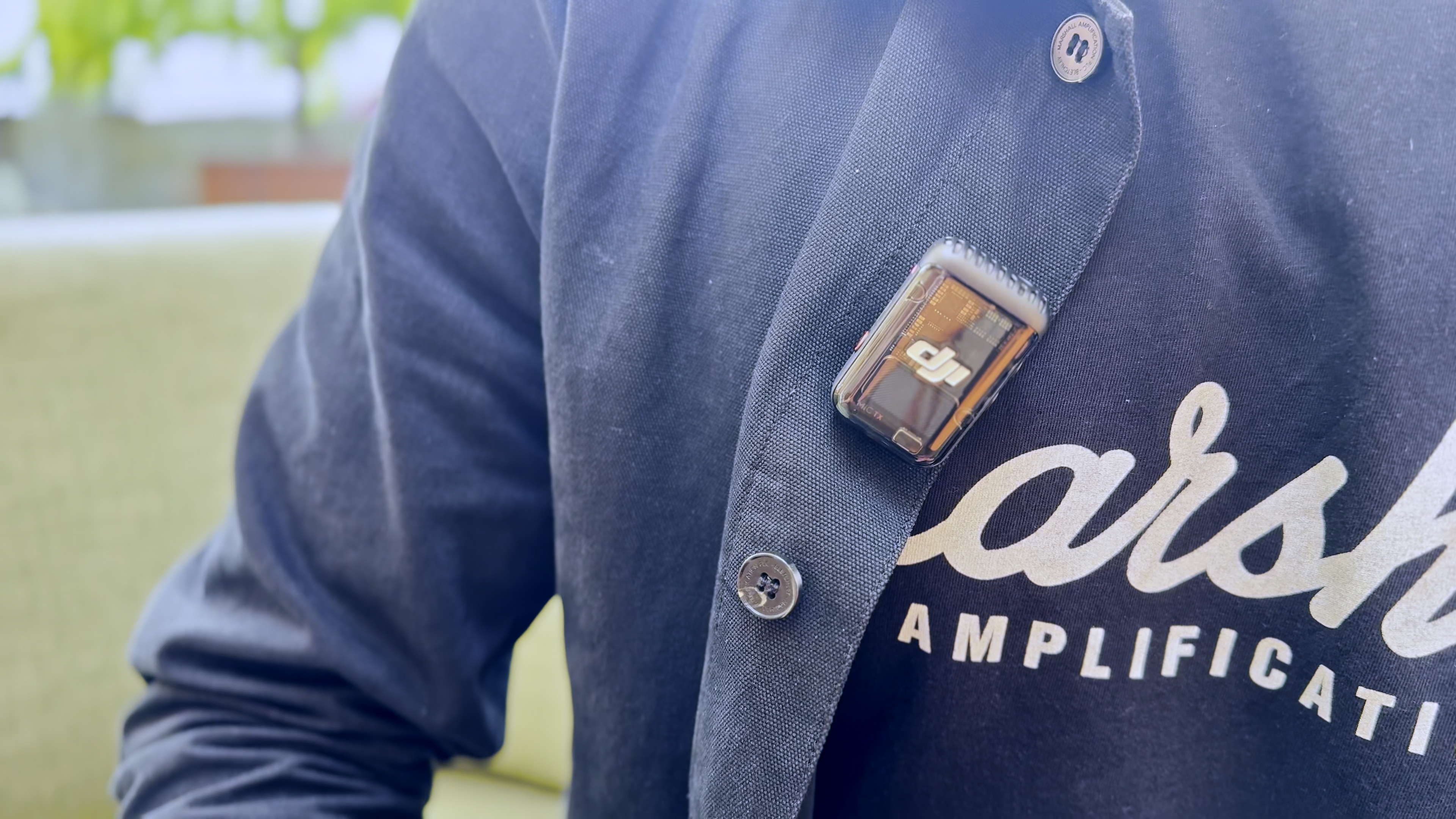
I put this setup to the test during a few interviews. Even relying on the internal audio from the mics, without connecting optional lapels, sound quality proved top-notch. These can also be set to automatically internally record 32-bit float audio as soon as they're turned on, so I never had to worry about disconnects or interference during my interviews.
DJI Mic 2: $349 @ Amazon
The easiest way to record high quality wireless audio with your Osmo Pocket 3 and other devices.
The Osmo Pocket 3 has some quirks
I'm not a big fan of the Pocket's cover. It's meant to protect the gimbal and front screen, but it doesn't always snap on quickly and usually doesn’t even keep the camera locked in place to prevent it from turning outwards. Towards the end of my trip, I found myself ditching it a lot in favor of a speedier start/stop process, though I made sure to handle the Pocket delicately while it was in my pocket.
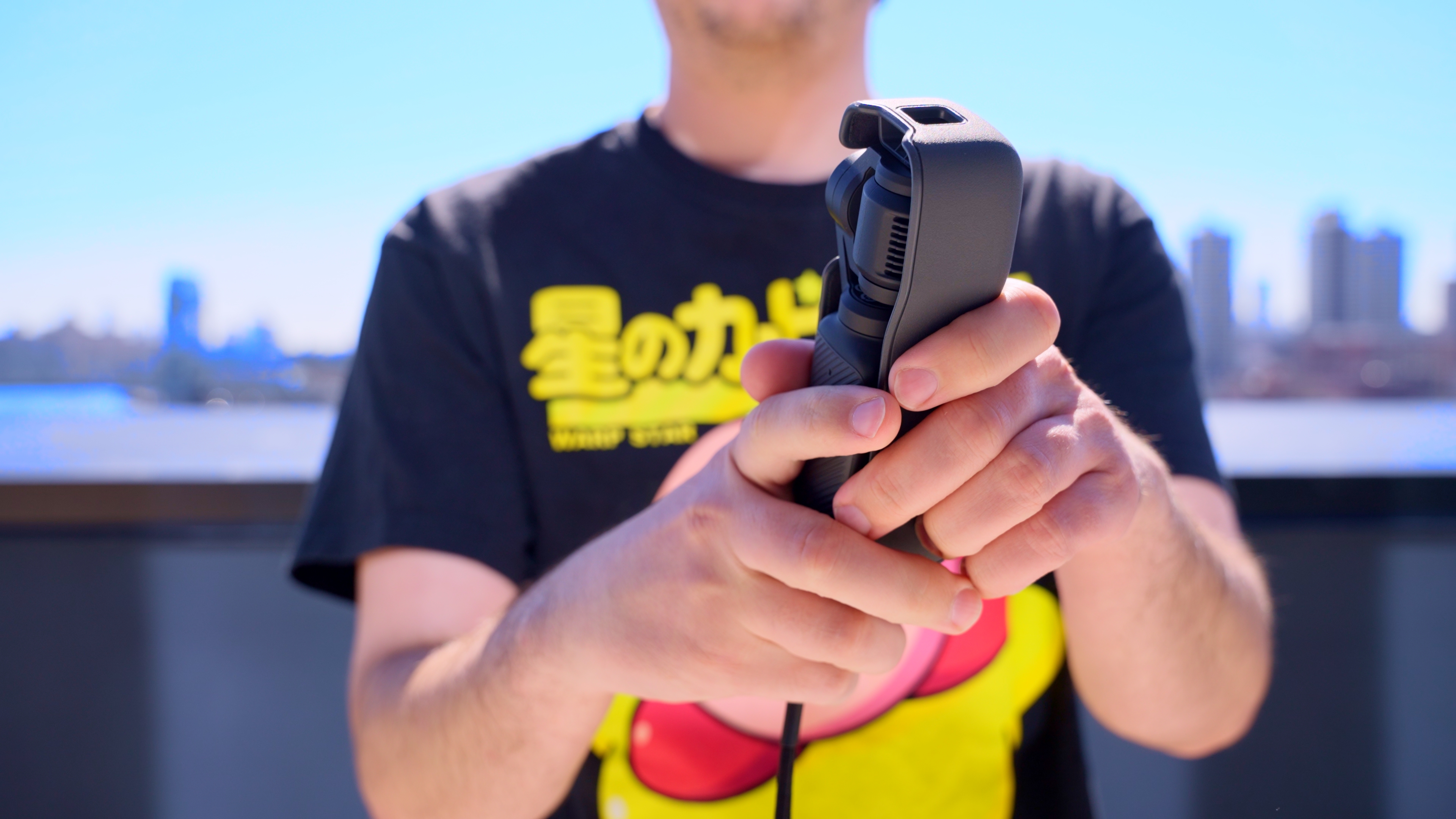
One of the Osmo’s tricks is that you can quickly switch to “vertical” 3k recordings. However, unlike its drone counterpart, the DJI Mini 3 or 4 Pro, the lens itself doesn't physically rotate. In reality it’s only digitally cropping the sides to create a 9x16 video. This mode is convenient as it helps you quickly make sure everything you need is in center frame, but if you don't mind the extra steps in editing, you’re better off shooting with the full sensor read out so you have the most flexibility later on — especially if you want to purpose the same content for both horizontal and vertical exports.
The biggest trade-off
Coming from a more robust camera setup, I quickly found myself missing the ability to swap out lenses or use a zoom lens to change up my perspective. While the Osmo Pocket 3's wide field of view was fantastic for capturing everything I saw during my Austin Food Tour and concerts, it struggled when it came to recording subjects either up close or far away.
Roughly equivalent to a 20mm f/5.4 on a full frame, the Osmo 3 punches above its weight class, especially in low light conditions, with a more flattering depth of field compared to the iPhone 15 Pro's main 24mm f/6.3 equivalent. But as you can imagine, I sorely missed the zoom range of my Sigma 24-70mm lens. Although the Pocket 3 has a 2x digital crop option, it was nowhere near as useful as my iPhones 3-lens iPhone setup. As a result, I frequently preferred my iPhone as I could quickly switch between focal lengths.
Can the Osmo Pocket 3 replace my Sony a7iii?
Testing the Osmo Pocket 3 for a week straight, it proved an incredible travel camera. For capturing my experiences, and being able to take it everywhere I went, it met my needs. You can see everything I used it for during SXSW in our YouTube video.
I can see myself using the Osmo Pocket 3 as my main video camera for other trips, but I’ll probably still be taking along my a7siii and some kind of zoom lens for that additional flexibility and range when I need it. If DJI ever manages to fit a zoom lens in the future on this thing, it'd be a different story.

Paul Antill is a Video Producer and Content Creator at Tom's Guide, specializing in video/audio recording, smart home technology, and laptops. His passion lies in making tech coverage not just informative but also fun and accessible to everyone answering the question “Why does this new product or feature matter to me?” Paul has been a tech host and video producer since 2019 where he has also covered major tech and gaming events. His love for tech and video began on his YouTube channel where for the low price of one subscription he shares head-to-head comparisons and clever ways to make the most of your gear. You can also see the behind-the-scenes and the magic that goes into our Tom’s Guide videos over on his Instagram. Paul graduated from the Mason School of Business at William & Mary, Williamsburg, VA, with a degree in Marketing and Business Analytics. When he's not on camera, you’ll probably still spot him behind one doing street photography and videography. Back home he’s probably in a heated Overwatch 2 match with his friends.
